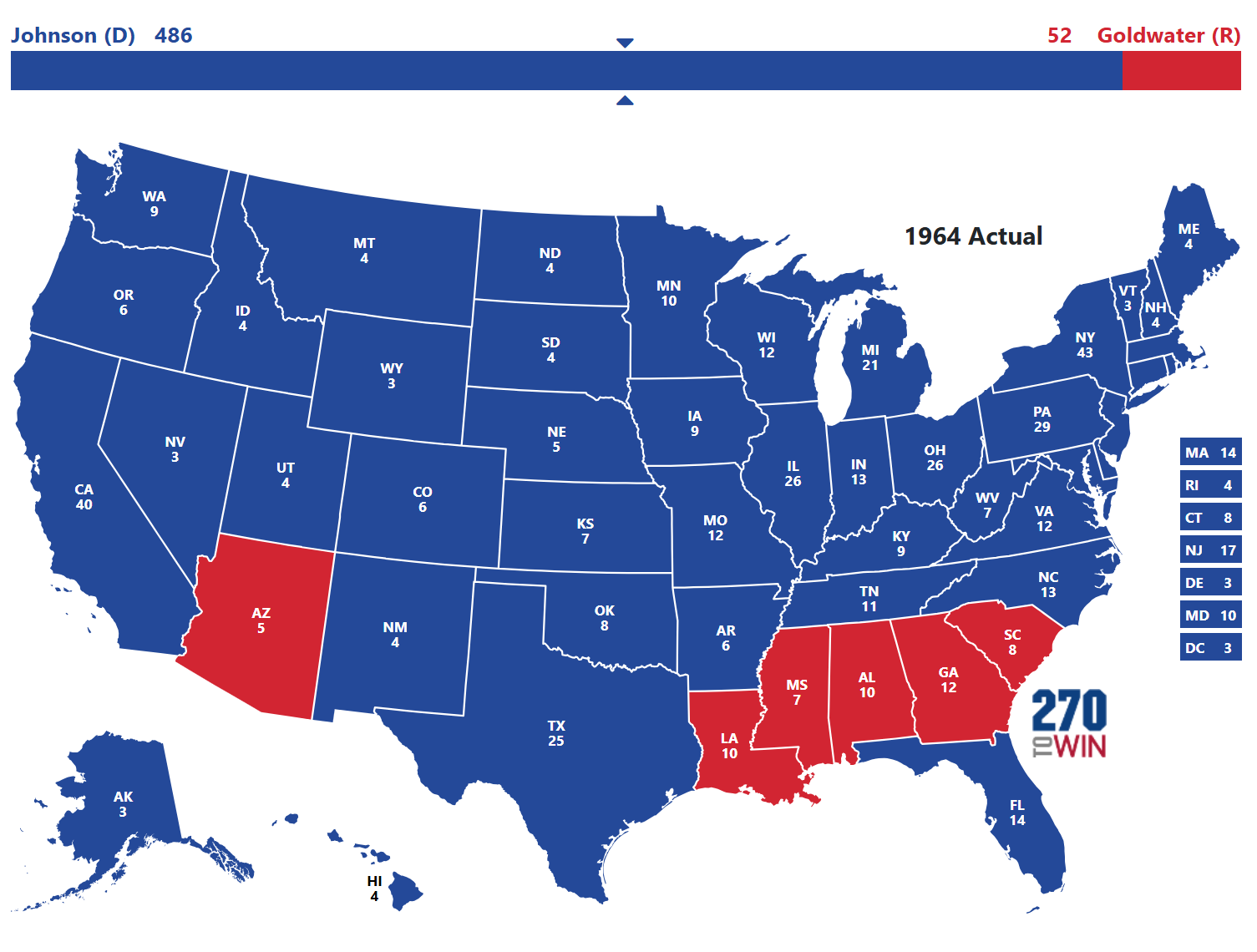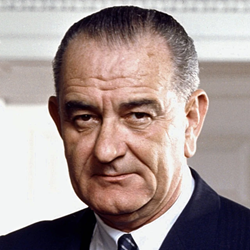1964 Presidential Election
The United States presidential election of 1964 was the sixth-most lopsided presidential election in the history of the United States behind the elections of 1936, 1984, 1972, 1864, and 1980 (in terms of electoral votes; in terms of popular vote, it was the fifth-most). President Lyndon B. Johnson had come to office less than a year earlier following the assassination of his predecessor, John F. Kennedy, and Johnson had successfully associated himself with Kennedy's popularity. Johnson also successfully painted his opponent, Republican Senator Barry Goldwater of Arizona, as a right-wing legislator who wanted to abolish the social welfare programs created in the 1930s (such as Social Security). LBJ advocated more such programs, and after 1965, instituted three: Medicare, Medicaid, and the War on Poverty.
With these factors working for him, Johnson easily won the Presidency, carrying 44 of the 50 states and the District of Columbia. As of 2009, Johnson's 22.6 percentage point-margin of victory in the popular vote is the fifth-largest such margin in Presidential election history (after the margins of the 1920 election, 1924 election, 1936 election, and 1972 election). Johnson won 61.1% of the national popular vote, which remains the highest popular-vote percentage won by a U.S.presidential candidate since 1820. The election is also remembered due to Goldwater's status as a pioneer in the modern conservative movement.
Source: Wikipedia
1964 Election Results
| Candidate | Party | Electoral Votes | Popular Votes | ||
|---|---|---|---|---|---|
| ✓ | Lyndon B. Johnson (I) | Democratic | 486 | 42,825,463 | |
| Barry M. Goldwater | Republican | 52 | 27,146,969 |

1964 Election Facts
- 23rd Amendment ratified in this cycle: Washington DC given electoral representation
- Number of Electors reaches 538; has remained there to this day
- Issues of the Day: Great Society (Civil Rights), Vietnam (Gulf of Tonkin), Good Economy


